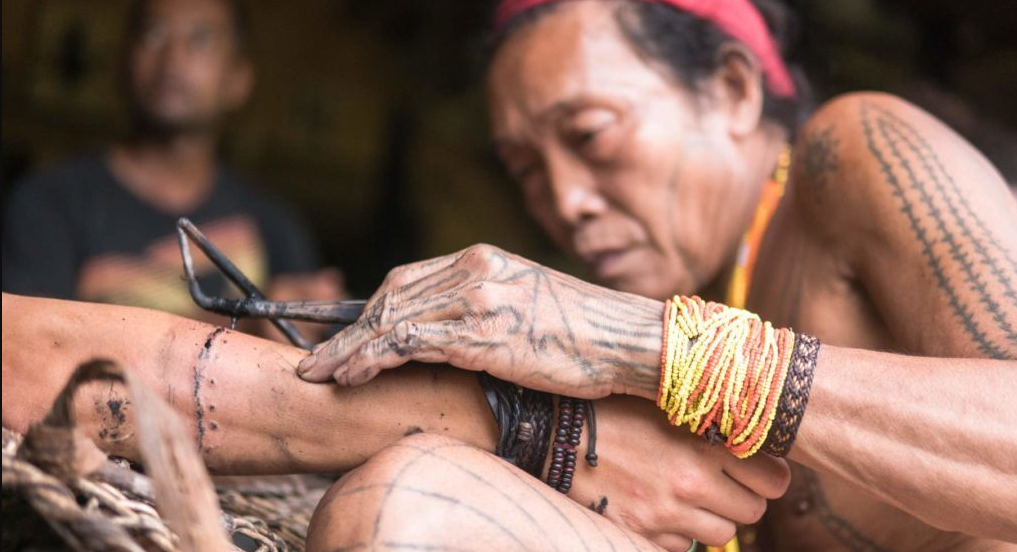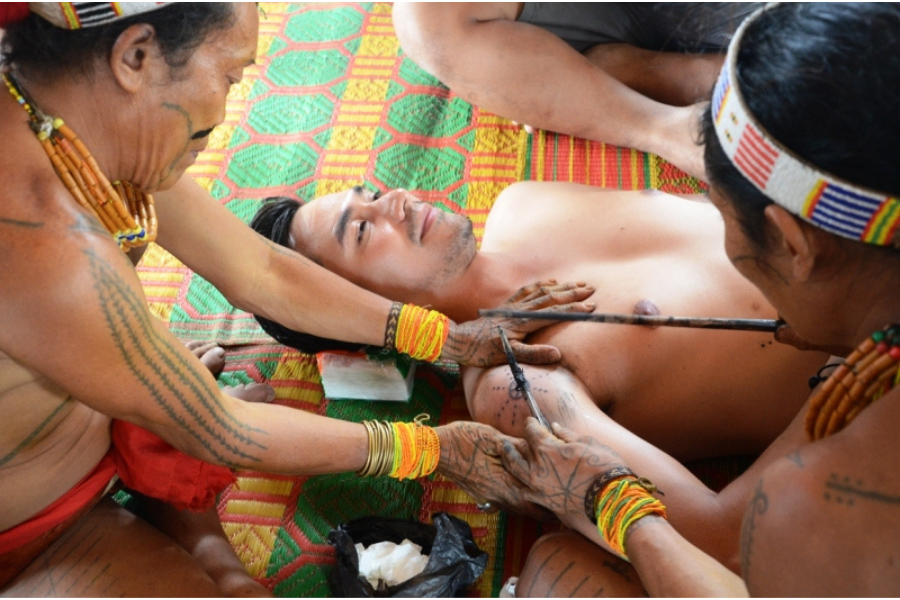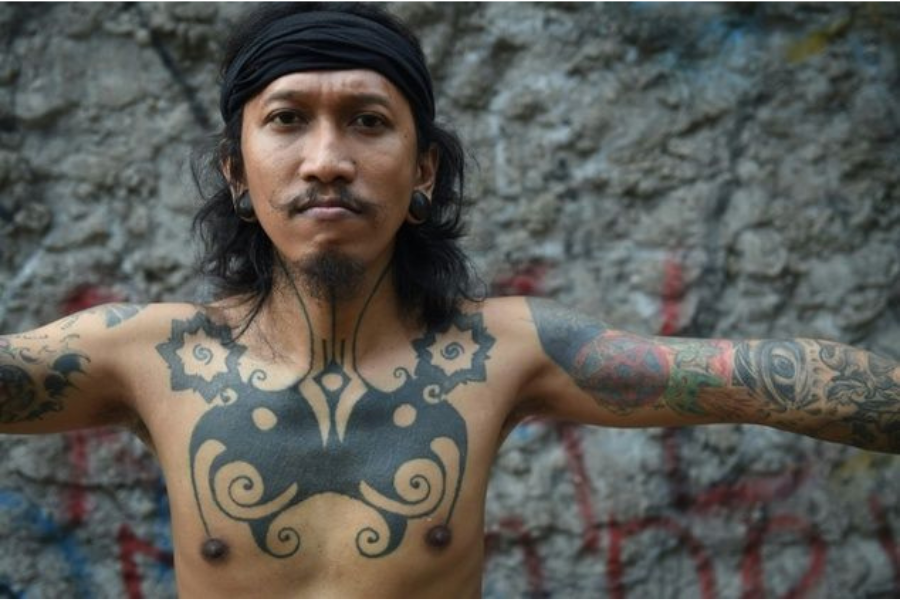

Tattooing is the art of adorning the skin with images or patterns produced by piercing pigment beneath the surface of the skin. In the history of Indonesian tattoo, tattoos are not just a cosmetic trend or personal expression, but have deep roots in history and culture. As an archipelago rich in ethnic and cultural diversity, Indonesia has diverse tattoo traditions that tell a story of time travel and rich cultural encounters.
The history of Indonesian tattoo can be traced to ancient times. Some historical records show that tattoos have existed in indigenous Indonesian culture since thousands of years ago. Tribes such as the Dayak in Kalimantan, the Mentawai in Sumatra and the Asmat in Papua, have deep tattoo traditions. These ancient tattoos often have deep meanings, such as denoting social status, achievements in war or even spiritual ties to nature and ancestors.

Tattoos in Indonesian culture are often not just a form of body decoration, but also have a deeper role in shaping social and cultural identity. In some tribes, tattoos are a symbol of status and maturity. For example, tattoos are required on tribe members who have reached a certain age or have experienced certain achievements in life. In addition, tattoos can also be an identifying mark of a particular tribe or community, reinforcing a sense of solidarity and pride.
With the entry of religions such as Islam and Christianity into Indonesia, the view on tattoos has changed. Some schools of Islam prohibit tattoos because they are considered to be destructive to the body created by God, while Christianity tends to see them as an immoral practice. As a result, the practice of tattooing in some areas has decreased, especially among people who follow these religions.
However, despite the decline in the practice of tattooing in some regions, the tradition of tattooing has survived and continues to adapt to the changing times. Many modern tattoo artists in Indonesia are inspired by ancient tattoo traditions and try to combine them with more contemporary techniques and styles.

Indonesian Tattoo Renaissance
In recent years, tattoos in Indonesia have experienced a resurgence in popularity. People are now more open to tattoos as a form of self-expression, art, and cultural identity. Various tattoo festivals and tattoo art competitions are held across the country, providing a platform for tattoo artists to share their work and honor ancient traditions.
The History of Indonesian Tattoo is a reflection of its cultural diversity and rich history. From ancient traditions laden with meaning to modern adaptations that honor cultural roots, tattoos continue to develop new narratives in Indonesia’s cultural journey. Through this art, the stories of the ancestors continue to be preserved and enjoyed in a form that is relevant to our current times.